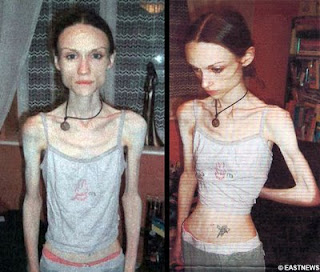Assessing your health
Before your treatment begins, you will probably have an overall assessment of your health. This may be done by your GP or another healthcare professional, such as one that specialises in eating disorders.
The assessment will help your healthcare professional draw up a plan for your treatment and care. For example, they may assess:
- your health and medical needs
- your social needs, such as support from family and friends
- any risks that affect you, such as whether you are at risk of harming yourself
- how mild or severe your condition is, in case any urgent action is needed
Your care team
If you are diagnosed with anorexia nervosa, your GP will probably be involved in your ongoing treatment and care. Other healthcare professionals may also be involved in your treatment, such as:
- a specialist counsellor
- a psychiatrist (doctor who specialises in treating mental health conditions)
- a psychologist
- a nurse
- a dietician (specialist in nutrition)
- If a child or teenager has anorexia, a paediatrician (doctor who specialises in children) may also be involved in their treatment.
Your treatment plan
Where you are treated may depend on how mild or severe your condition is. For example, you may be treated:
- as an outpatient (this is most common)
- as a day patient or in a day unit
- as in inpatient in hospital, if your weight loss or symptoms are severe
In some parts of England, eating disorders such as anorexia are treated by community mental health teams, which are made up of different health and social care professionals. See ‘Mental health services – professionals’ for more information on community mental health teams.
In other areas, there are units that specialise in treating eating disorders. Some services that treat eating disorders also specialise in treating young people.
Treating anorexia
It is important to start treatment as early as possible, especially if someone has already lost a lot of weight.
Treatment for anorexia usually includes:
- psychological treatment – talking to a therapist or counsellor
- advice on eating and nutrition to help you gain weight safely
These treatments work better when combined, rather than on their own.
Your physical health will be monitored closely during your treatment. For example:
- your weight will be checked regularly
- you may have regular health checks with your GP or another healthcare professional
In children and young people with anorexia, their growth, development and weight will be monitored closely. Their height will also be checked regularly against the average for their age and sex.
Other health problems caused by your anorexia will also be treated. For example:
- If you vomit regularly, you will be encouraged to stop. You will be given advice on dental hygiene to help prevent stomach acid damaging the enamel on your teeth. You will also be advised to visit a dentist regularly.
- If you take laxatives or diuretics, you will be advised to reduce them gradually so that your body can adjust. Stopping them suddenly can cause problems, such as nausea and constipation.

thanks for visit my blog....
ReplyDeleteyours sites is amazing...
WoooooooWooooW...
nice info..
ReplyDeletethanks 4 visiting..
nice blog
ReplyDeletehttp://rybadge.blogspot.com/
visit back ;)
ReplyDeleteblogwalking . . . please visit back. . . :D
ReplyDeletefinally i can stay here. visit me back. ok.
ReplyDelete